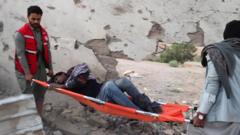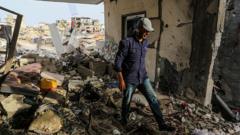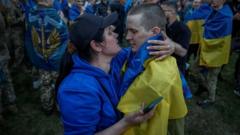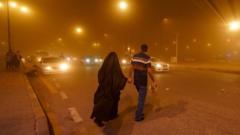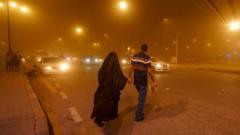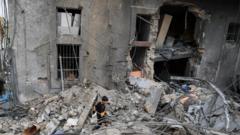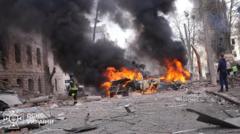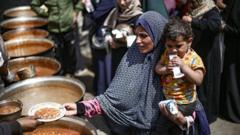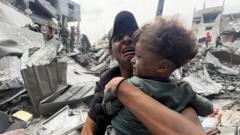Turkish military expansion in the Iraqi Kurdistan village of Sergele jeopardizes the community's agricultural heritage and heightens tensions amid the ongoing conflict with the PKK, raising concerns over civilian safety and rights.
Struggles of Sergele: Life in Iraq's 'Forbidden Zone' Amid Turkish Occupation
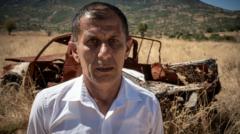
Struggles of Sergele: Life in Iraq's 'Forbidden Zone' Amid Turkish Occupation
The village of Sergele faces severe threats as Turkish military bases proliferate in Iraqi Kurdistan, impacting local livelihoods and igniting fears of displacement.
Nestled in the scenic mountains of Iraqi Kurdistan, the village of Sergele has long been synonymous with thriving agriculture, particularly the cultivation of pomegranates, almonds, and peaches, alongside a vibrant foraging culture. However, this picturesque locale is experiencing existential threats as it increasingly becomes encircled by Turkish military installations. At least seven bases have been constructed over the past two years in the area, drastically altering the local landscape and eroding residents' access to vital resources. Sherwan Sergeli, a 50-year-old farmer, laments the loss of farmland, stating, "This is 100% a form of occupation of Kurdish [Iraqi Kurdistan] lands. The Turks ruined it."
The backdrop of Sergele's plight is the broader context of Turkey's involvement in the Kurdish conflict, specifically targeting the PKK, which has been engaged in an insurgency since 1984. The region, often dubbed the "Forbidden Zone," extends along the Iraqi-Turkish border, posing a unique set of challenges for its inhabitants. According to the Community Peacemaker Teams, air strikes and drone attacks have resulted in numerous civilian casualties, displacing thousands and leaving entire villages abandoned. The local environment bears the scars of ongoing military operations, as evidenced by recent satellite reports indicating Turkey's establishment of over 136 military facilities in northern Iraq and extensive infrastructure development.
While Turkey asserts that these measures are necessary to counter terrorism, residents like Salam Saeed, unable to cultivate his vineyard for the last three years due to military intimidation, fear for their futures. He states bluntly, "The moment you get here, you will have a drone hover over you... They will shoot you if you stay."
The dynamics of power in the region complicate the situation further. A stark example is evident in the nearby sub-district of Kani Masi, where a once-flourishing economy has collapsed under the weight of military presence. The local Kurdish authorities have seemingly acquiesced to Turkey's demands, leading to segmented control of the area and diminished enforcement of Iraqi sovereignty. General Farhad Mahmoud explains that the Iraqi border guards are unable to patrol their own territory, leaving residents vulnerable to external threats.
Despite the evident crises, the Iraqi government has refrained from taking a firm stand against Turkey's military operations, largely due to economic dependencies and the fractious nature of its own politics. Publicly condemning the military presence, officials secretly collaborate for mutual strategic interests, notably in combating the PKK.
Residents continue to bear the brunt of the fallout, evident in tragic incidents like that of Alan Ismail, a young cancer patient killed by an air strike, highlighting the toll on innocent lives. The aftermath reveals systemic failures in accountability, as documents suggest Kurdish authorities may be undermining justice for victims of military actions. Amid their suffering, families like Ismail's seek even basic recognition of their loss.
As the Turkish military continues to tighten its grip on Iraqi Kurdistan, the lives of Sergele's inhabitants cast a poignant shadow over the region's future, spiraling into despair as both their rights and resources dwindle against the persistent backdrop of conflict. "They could at least send their condolences," says Ismail Chichu, mourning his son. "When something is gone, it's gone forever."


